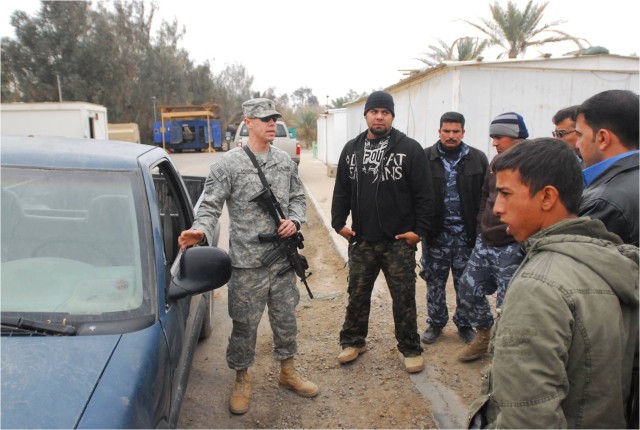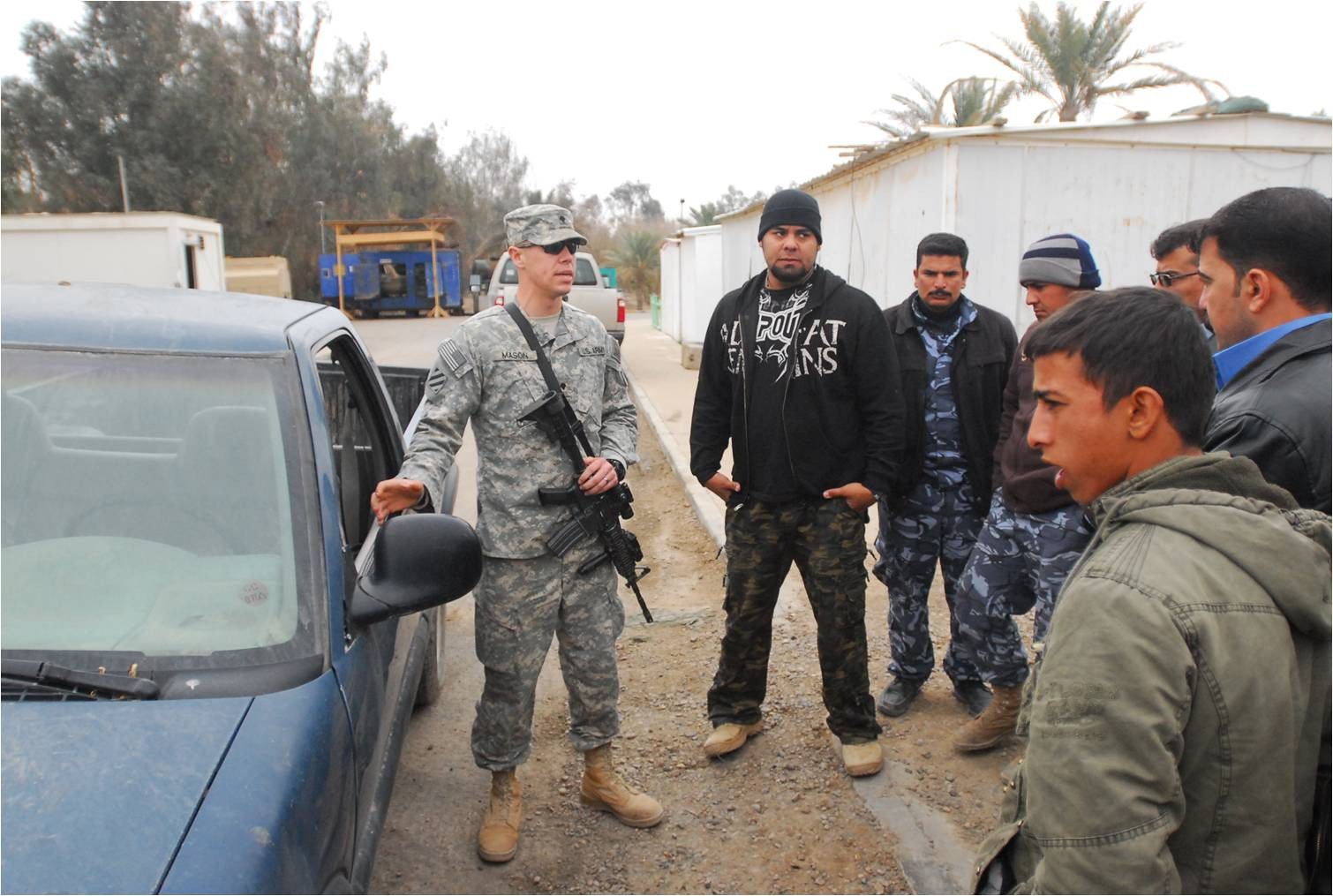
CAMP FALLUJAH, Iraq - The Stability Transition Team at Camp Fallujah, Iraq, along with the aid of military police Soldiers with Headquarters and Headquarters Company, Brigade Special Troops Battalion, 4th Advise and Assist Brigade, 3rd Infantry Division, United States Division - Center, conducted "Scorpion" training recently for Iraqi Police officers from the Fallujah, Gharma and Ameriyah districts.
Scorpion training is a three-day crash course in basic policing functions-police investigative techniques, vehicular searches, crime scene preservation and professional ethics.
The bi-weekly course at Camp Fallujah is designed to build IP proficiency and professionalism, augmenting the training most IP officers in the province will undergo at the Anbar Training Center in Habbaniyah, Iraq.
"This training is strictly for the (Iraqi Police officers)," said Maj. John Jeffery, IP adviser with the STT, 4th AAB, 3rd ID. "What we're trying to do is develop IP primacy within the districts."
The first day of the course is spent in the classroom, brushing up on police investigative techniques while in the field. Aided by slides and videos, military police trainers and U.S. police advisers explain how to conduct a vehicular search properly and cordon off a crime scene, and demonstrate the types of evidence collection available by forensics analysis. The instructors stress the importance of not contaminating a crime scene.
"One of the objectives of the course is to promote the transition from a testimonial based evidence system to a physical based evidence system," Maj. Jeffery said. "We want to encourage the use of physical evidence as much as possible."
At present, IP officers work side-by-side with the Iraqi Army in Fallujah to maintain security in the districts. While they have experience manning checkpoints and reacting to incidents, many of the IP officers in Fallujah have little in the way of professional police training. Many were a part of the Sons of Iraq, which fought Al Qaeda earlier in Operation Iraqi Freedom in 2005, but for IP primacy to develop they must undergo police proficiency and professionalism training. However, it is difficult for district police commanders to pull their men off the line for lengthy periods to attend police proficiency and professionalism training at the Anbar Training Center in Habbaniyah.
Initially, one of the challenges the stability transition team at Camp Fallujah confronted was how to implement sustainment training without interfering with manning or the regular police rotation to the Anbar Training Center.
Major Jeffery said the Scorpion training is not meant to replace that received at the ATC, but to maintain and enhance skills.
"We want to rotate as many officers as we can through this training before they go to Habbiniyah," he said. "This is sustainment training. It is meant to keep these officers alive in the field before they get sent to the Anbar Training Center."
The three-day course has been averaging an enrollment of seven officers per iteration since its inception in September. In a recent class, 16 officers from Fallujah attended.
During the latter part of the training, U.S. advisers conducted simulation field exercises with the IP officers. The officers were divided into teams of three and four and learned the proper way to perform a vehicular search, apprehend and search a suspect and react to an attack.
The field exercises were meant to develop a level of trust between the IP officers and establish a sense of self-reliance.
Specialist Shawn Mason, a military police trainer with HHC, BSTB, 4th AAB, 3rd ID, taught the vehicular search portion of the training.
"The goal is to minimize the amount of weapons going through the city," he said to the IP officers in attendance, "and to try and make your communities a little safer."
The final day of the training was devoted to tactical operations. Teams of Iraqi Police officers cleared rooms in an exercise that simulated a hostile situation that could also have civilian bystanders. The U.S. advisers gave instruction on how to scan the room, the importance of announcing yourself as a police officer and dealing with the possible threats inside the room.
"It's the first time most of them have done something like this," said Sgt. Scott Rutter, a military police trainer with HHC, BSTB, 4th AAB, 3rd ID.
The Iraqi Police officers went through the drill several times to gain familiarity with the simulation. Throughout the course, U.S. advisers and trainers repeated the emphasized themes of self-protection and the safety of the officers.
On the final day, the IP officers graduated during a ceremony, receiving a certificate verifying the completion of Scorpion training.

Social Sharing